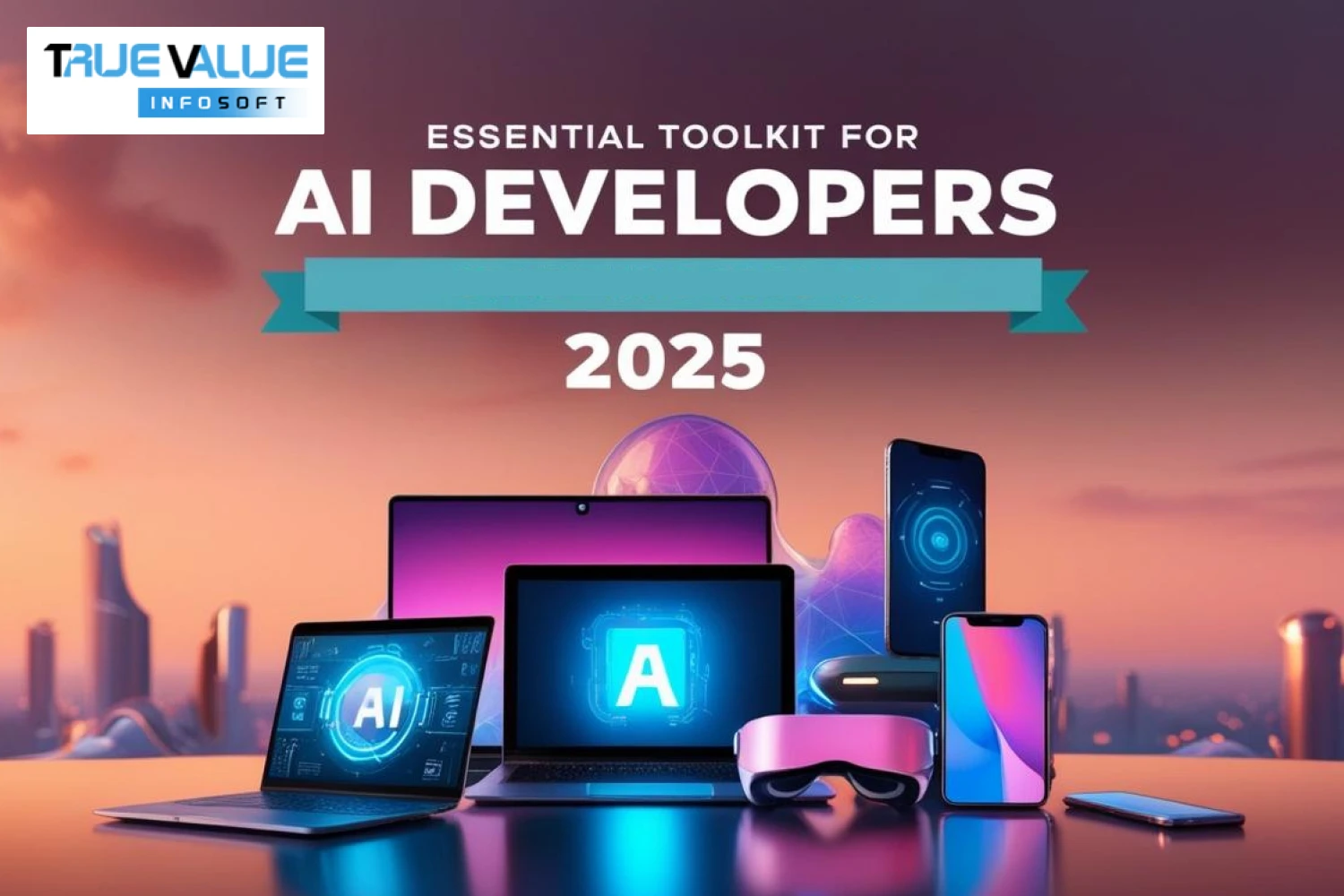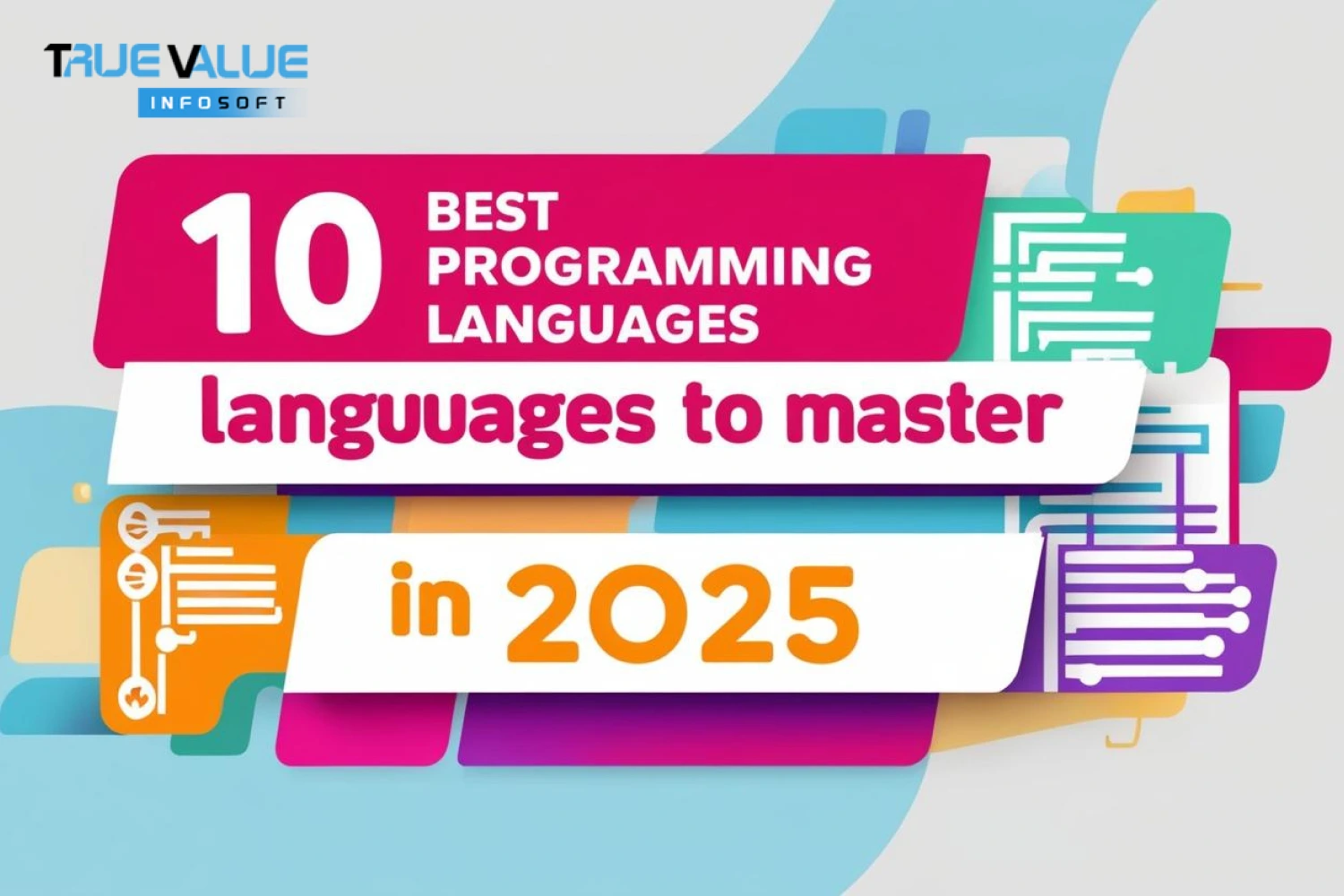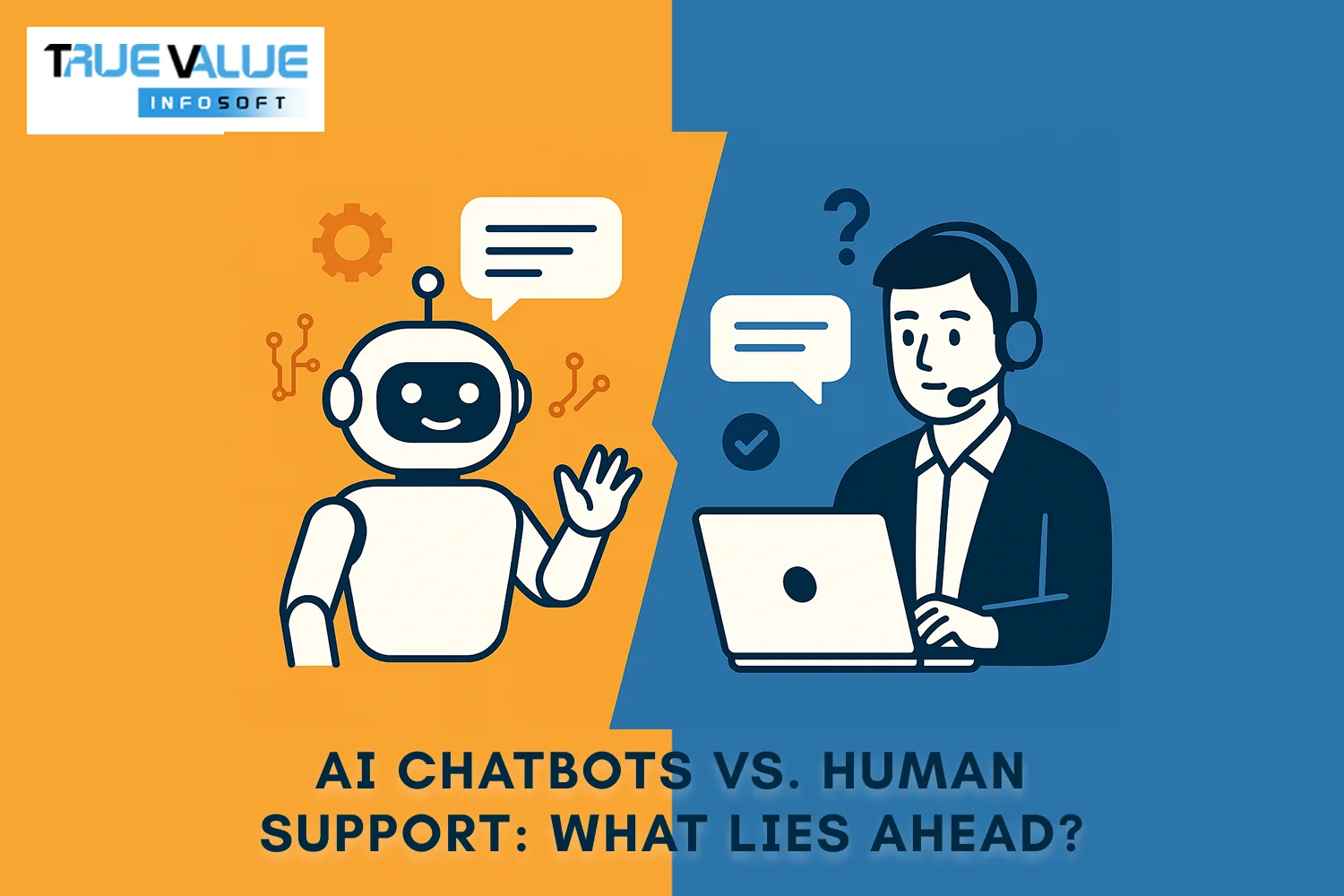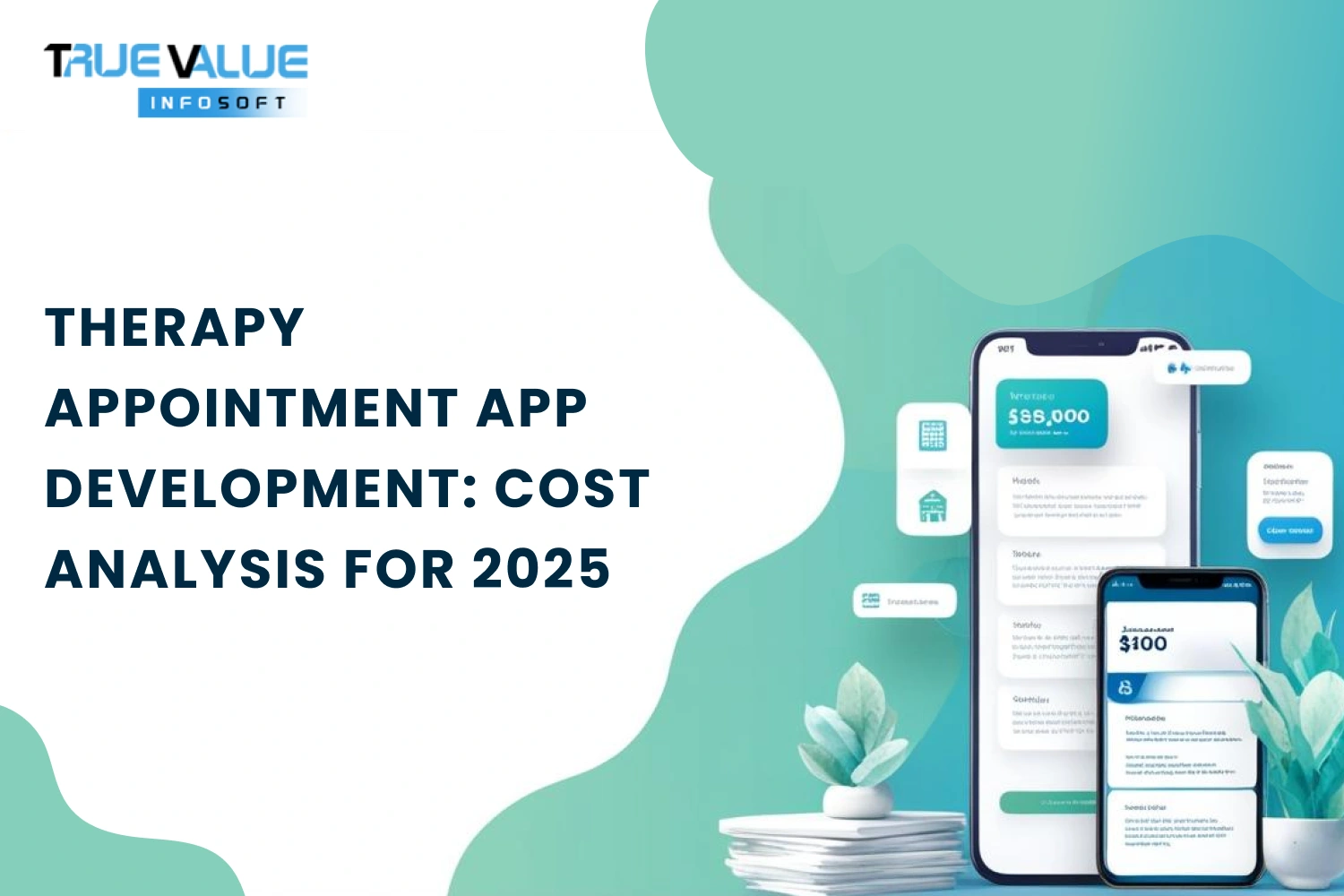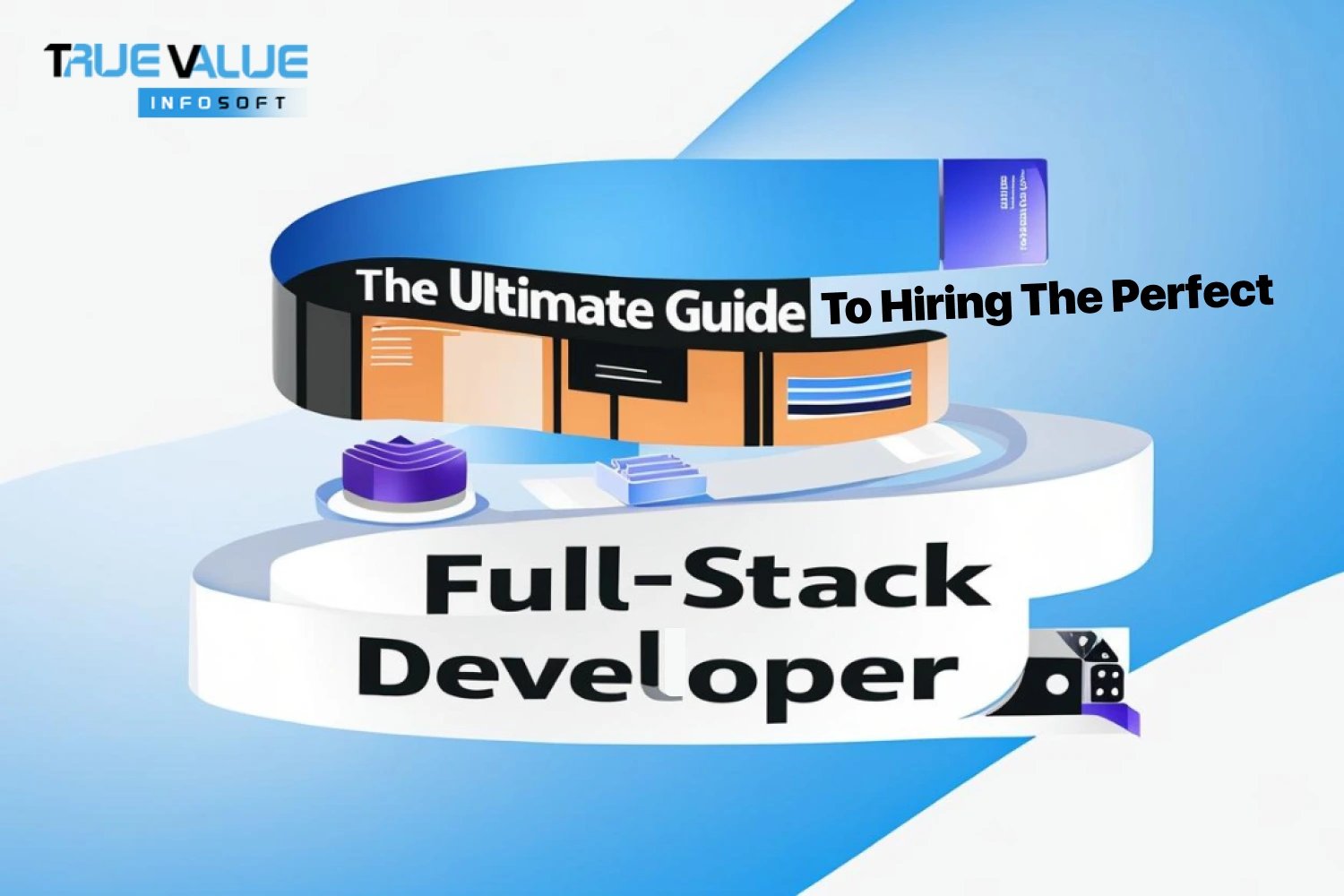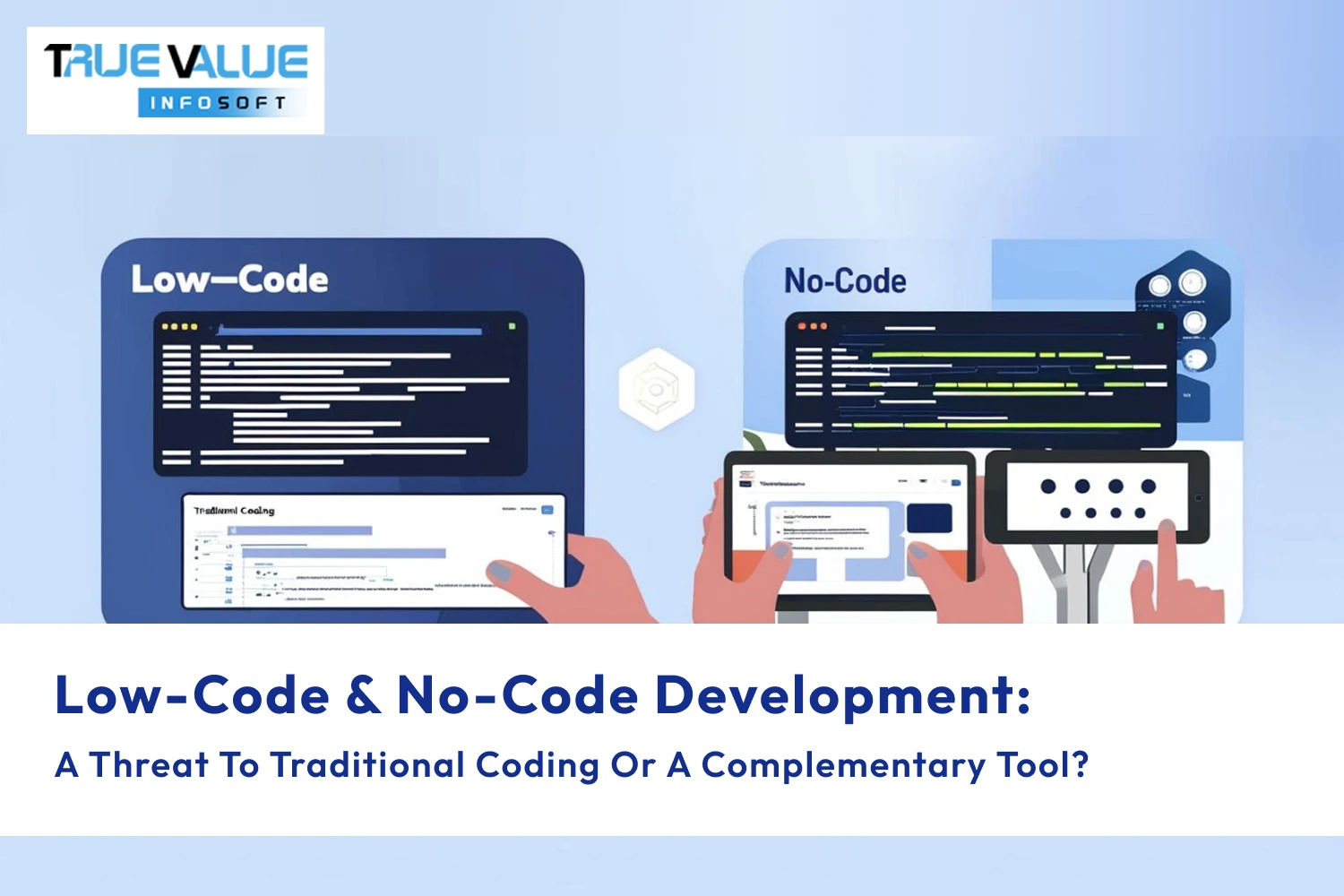Introduction: AI Development in 2025
Are you equipped with the right tools to thrive as an AI developer in 2025? As artificial intelligence continues to revolutionize industries—from healthcare and finance to education and entertainment—the need for a comprehensive, up-to-date toolkit has never been more critical. Whether you're building intelligent chatbots, predictive analytics engines, or autonomous systems, success hinges on having the best frameworks, libraries, and platforms at your fingertips.
In this fast-evolving landscape, staying ahead means embracing innovation, scalability, and efficiency. That’s where the right development toolkit becomes your greatest asset. From powerful machine learning libraries and data annotation platforms to cloud-based deployment tools and advanced debugging environments, every component plays a key role in transforming your AI vision into reality.
At True Value Infosoft, the best AI app development company, we understand the pulse of modern AI development. With years of experience delivering cutting-edge AI solutions to clients across the globe, we know which tools actually drive results.
Core Programming Languages for AI in 2025
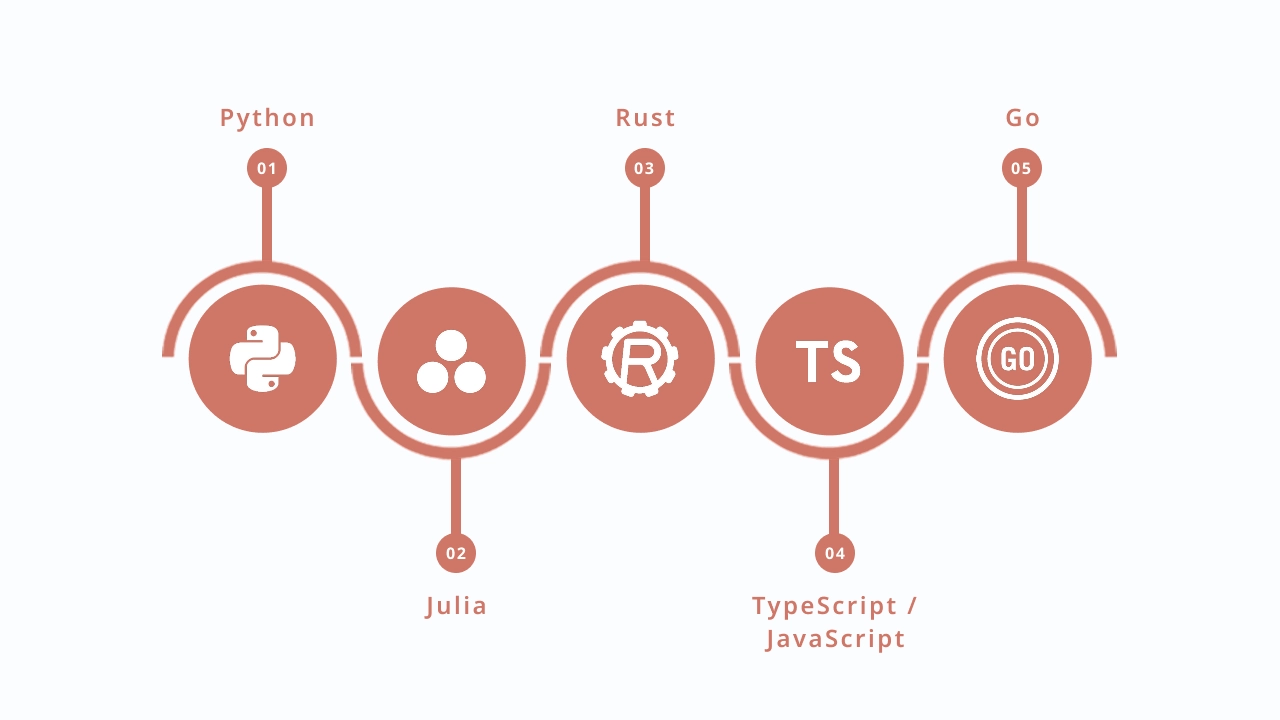
While dozens of programming languages exist in the AI/ML domain, only a few dominate the modern stack. In 2025, these are the key ones to master:
Python
Still the king of AI development. Python boasts massive community support and thousands of mature libraries for:
- Deep learning (TensorFlow, PyTorch)
- NLP (spaCy, NLTK, HuggingFace)
- Data handling (NumPy, Pandas)
- Agentic AI (LangChain, AutoGen)
Julia
Designed for numerical computing, Julia is gaining popularity in scientific AI applications due to its speed and scalability.
Rust
For developers seeking memory-safe, high-performance backend AI infrastructure. Rust is great for building inference engines and deploying AI models at scale.
TypeScript / JavaScript
Essential for AI-powered web apps and browser-based AI agents. TensorFlow.js and ONNX.js bring ML to the front end.
Go
Used for building scalable AI services and backend systems. Lightweight, efficient, and increasingly supported in AI ops tooling.
Frameworks & Libraries Every AI Developer Must Know
These are the foundational libraries and frameworks dominating the 2025 AI landscape.
Deep Learning Frameworks
- PyTorch 3.0 – The most popular deep learning framework in 2025, with native support for quantized models and distributed training.
- TensorFlow 3 – Preferred for production-grade enterprise models, particularly in Google Cloud environments.
- JAX – Loved for its performance in scientific ML research, especially in physics-informed neural networks.
Natural Language Processing (NLP)
- Hugging Face Transformers – A powerhouse for LLMs with models like Falcon, Mistral, LLaMA, and GPT variants.
- spaCy 4.0 – Streamlined NLP tasks with multilingual and low-resource language support.
Computer Vision
- Ultralytics YOLOv10 – Real-time object detection with blazing speed.
- Detectron2 – Facebook’s framework for segmentation, used in AR/VR applications.
Reinforcement Learning
- RLlib (Ray) – Distributed RL for gaming, robotics, and simulations.
- OpenAI Gymnasium – The spiritual successor to Gym, integrated with real-time sensors.
Tools for LLM Development and Deployment
In 2025, large language models are at the center of AI development. Here are the key tools to build, fine-tune, and deploy LLMs:
LangChain / LangGraph
These orchestration frameworks let you build AI agents, multi-step chains, and autonomous workflows that interact with APIs, users, and databases.
LlamaIndex
Ideal for building RAG (retrieval-augmented generation) systems and indexing private data to extend LLM knowledge bases.
AutoGen (Microsoft)
Create autonomous AI agents that plan, reflect, and execute goals. Popular in product engineering and AI task bots.
vLLM / TensorRT-LLM / Exllama2
Lightweight inference libraries for deploying LLMs on consumer and enterprise GPUs with blazing speed.
Model Zoo Access
- Hugging Face Hub
- Replicate.com
- Together.ai
- Ollama
Data Handling, Preprocessing & Vector Databases
Data is the fuel of AI. In 2025, these tools power efficient data ingestion, transformation, and retrieval.
Data Wrangling
- Polars – A faster alternative to Pandas for working with large tabular datasets.
- Apache Arrow – Columnar memory format used for data pipelines and shared memory across frameworks.
Vector Databases
- Weaviate – Scalable, open-source vector DB with hybrid search and RAG support.
- Pinecone – Fully managed vector search engine with multi-tenant deployments.
- Qdrant – Popular in edge and IoT-based vector retrieval use cases.
- ChromaDB – Lightweight, great for local or embedded vector retrieval.
Cloud Platforms & AI DevOps Tools
Building AI solutions at scale requires cloud infrastructure, model monitoring, and MLOps tools.
AI Cloud Platforms
- AWS Bedrock / SageMaker
- Google Vertex AI
- Azure AI Studio
- Lambda Labs (for GPU instances)
MLOps Toolkits
- MLflow – Tracking experiments, metrics, and model versions.
- Weights & Biases – Visualizations, logs, and hyperparameter tuning.
- DVC – Git for data and ML experiments.
- KubeFlow / Ray Serve – Production deployment of scalable ML services.
Collaborative & Visualization Tools
In 2025, AI devs work in teams. Here’s how they collaborate and visualize insights.
Notebooks
- Deepnote / Hex – Collaborative Python notebooks with version control.
- JupyterLab 4.0 – Still a staple with integrated LLM assistants.
Visualization Tools
- Plotly Dash – Interactive dashboards.
- Streamlit 2.0 – Build beautiful data apps with minimal code.
- Gradio – Rapid prototyping and UI testing for AI apps.
Essential AI Ethics & Compliance Toolkits
Ethical AI isn’t optional—it’s necessary.
Key Tools
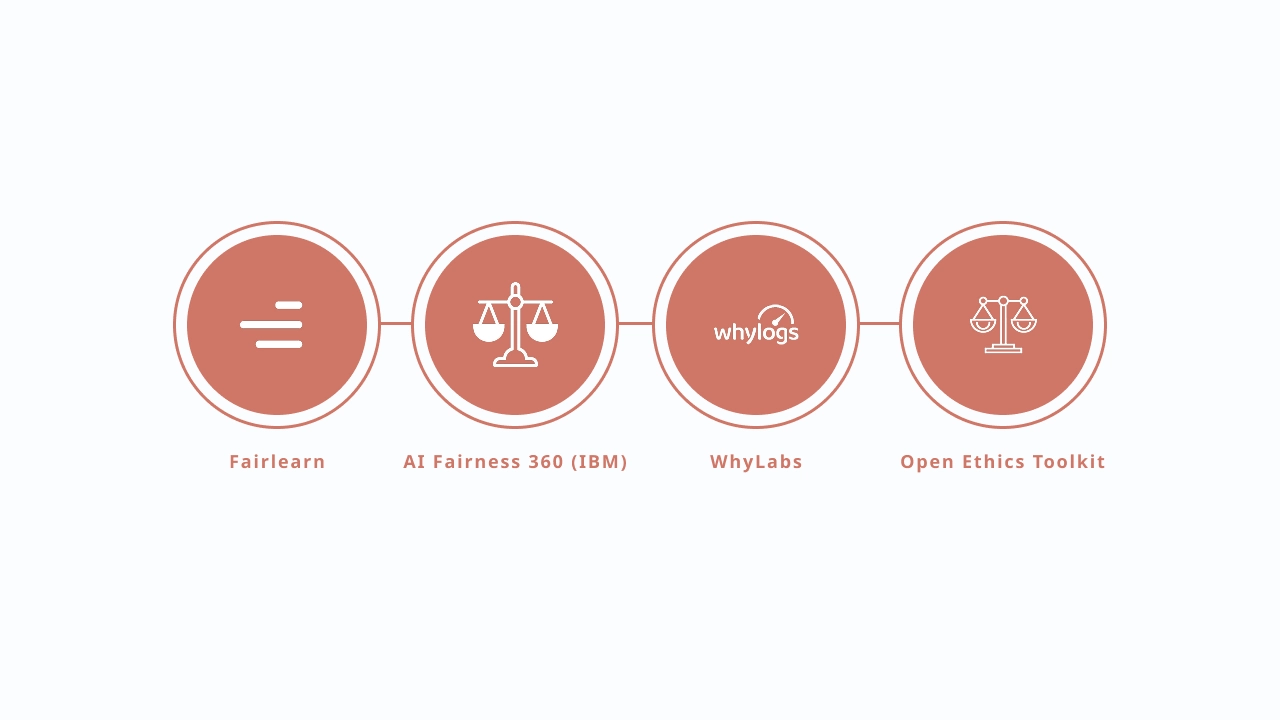
- Fairlearn – Bias detection and mitigation.
- AI Fairness 360 (IBM) – Detect and audit unfair bias.
- WhyLabs – Monitor model drift, outliers, and compliance.
- Open Ethics Toolkit – Checklists and datasets for responsible deployment.
Must-Know Open-Source Projects & Communities
Open-source powers innovation. These projects are must-know:
- OpenDevin – Developer agent that understands commands and performs tasks.
- GPT Engineer / SmolAI – Build apps with AI-generated backend logic.
- FastChat (by LMSys) – Open-source chat LLM server.
- AutoGPT / AgentGPT – Autonomous task bots with growing capabilities.
Communities to Join
- Hugging Face Forums
- Papers with Code
- Discords: AI Town, LangChain, Replicate
- Reddit: r/MachineLearning, r/LocalLLaMA
Future Trends & What’s Coming Next
The AI toolkit is evolving rapidly. Here's what's ahead:
- Multimodal AI dominance – LLMs that understand images, video, speech, and more.
- Smarter agent orchestration – AI agents managing agents.
- Hardware-optimized tools – Efficient deployment on edge devices (NPU, TPU, RISC-V).
- Synthetic data generation – Realistic data for training when data is limited.
- AI-as-a-service – Microservices powered by autonomous LLMs.
Conclusion
Being an AI developer in 2025 means being at the frontier of one of humanity’s most transformative eras. The tools you use define your speed, capability, and impact.
This toolkit covers every stage of the AI lifecycle—from data wrangling and model training to deployment, monitoring, and scaling. Whether you’re working on an intelligent chatbot, a self-learning DevOps system, or a multimodal assistant, this guide has equipped you with the essentials.
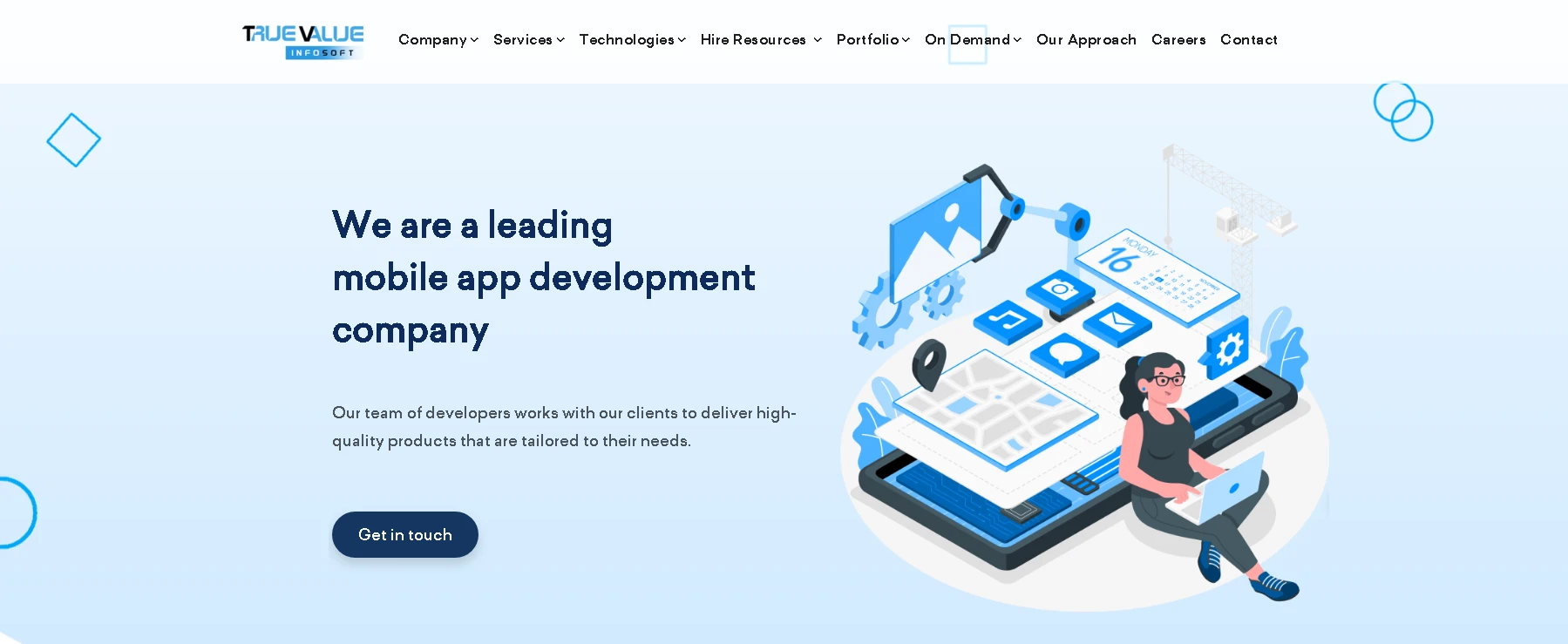
At True Value Infosoft, we actively explore, test, and deploy many of these tools in our real-world projects, from AI-driven CDR analysis to customer-facing agent solutions.
Ready to build the future? Your toolkit is now full. Let’s innovate!
FAQs
No, start with a core stack (e.g., Python, PyTorch, Hugging Face, LangChain) and expand as your projects demand.
Build real projects. Follow AI newsletters, experiment with Hugging Face Spaces, contribute to open source, and use tools like Gradio or Streamlit to prototype.
They can be. Use services like vLLM, quantized models, or inference APIs from providers like Together.ai to optimize costs.
Use cloud GPU providers (Lambda Labs, Paperspace, Google Colab Pro) or lightweight models like LLaMA 3-8B for experimentation.
AI developers can achieve a lot solo, but collaboration improves scale, reliability, and innovation. Tools like LangChain and MLflow help teams stay synced.
